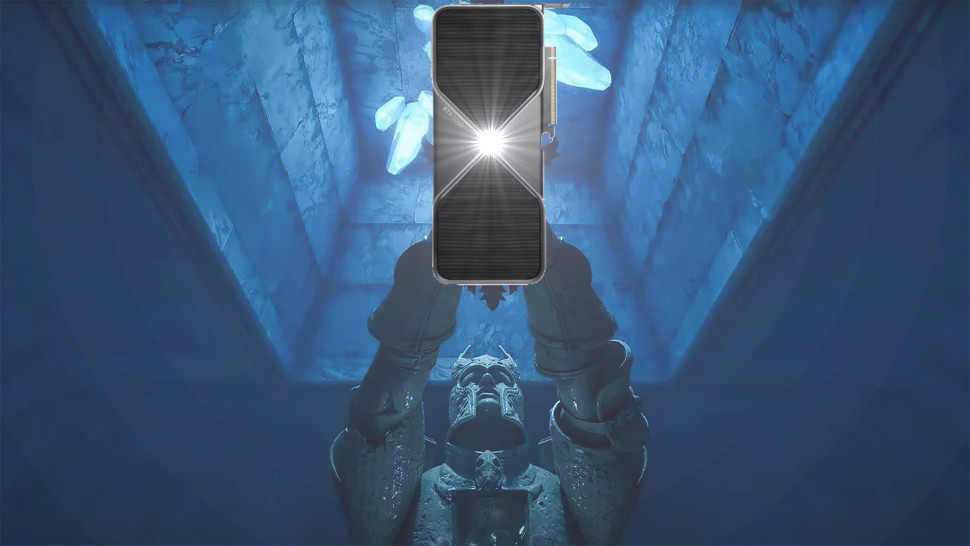
Update April 26, 2025: A botched Oblivion Remastered update for PC Game Pass players has resulted in a loss of some useful graphics settings, including DLSS and FSR.
Until an official fix is released, I'm using these in-game console commands (hit "~" to open) to jumpstart the missing features. Credit goes to Weird_Tower76 on Reddit.
- Type Altar.UpscalingMethod 1 and hit Enter to enable NVIDIA DLSS. Type Altar.DLSS.FG.Enabled 1 and hit Enter to enable frame generation.
- Type Altar.UpscalingMethod 2 and hit Enter to enable AMD FSR. Type Altar.FSR3.FI.Enabled 1 and hit Enter to enable frame generation.
You must input these console commands each time you launch the game.
In my case, an RTX 5070 Ti has gone back to triple-digit frame rates. I haven't touched any NVIDIA App settings since before the Friday Game Pass update, and they look the same as I've laid out below.
The Elder Scrolls 4: Oblivion Remastered launched on April 22, 2025, and it has already skyrocketed to the top of Steam's Top Sellers list with more than 100,000 players on the first day.
As players dive back into the world of Cyrodiil, it's becoming clear that the remake's move to Unreal Engine 5 puts a lot of stress on gaming PCs.
I have some good news. NVIDIA owners, especially those with an RTX 50-series GPU, can make some changes via the NVIDIA App to significantly boost performance.
All it requires is a few clicks in NVIDIA's software. Here's how it's done.
How to enable DLSS 4 overrides in The Elder Scrolls 4: Oblivion Remastered
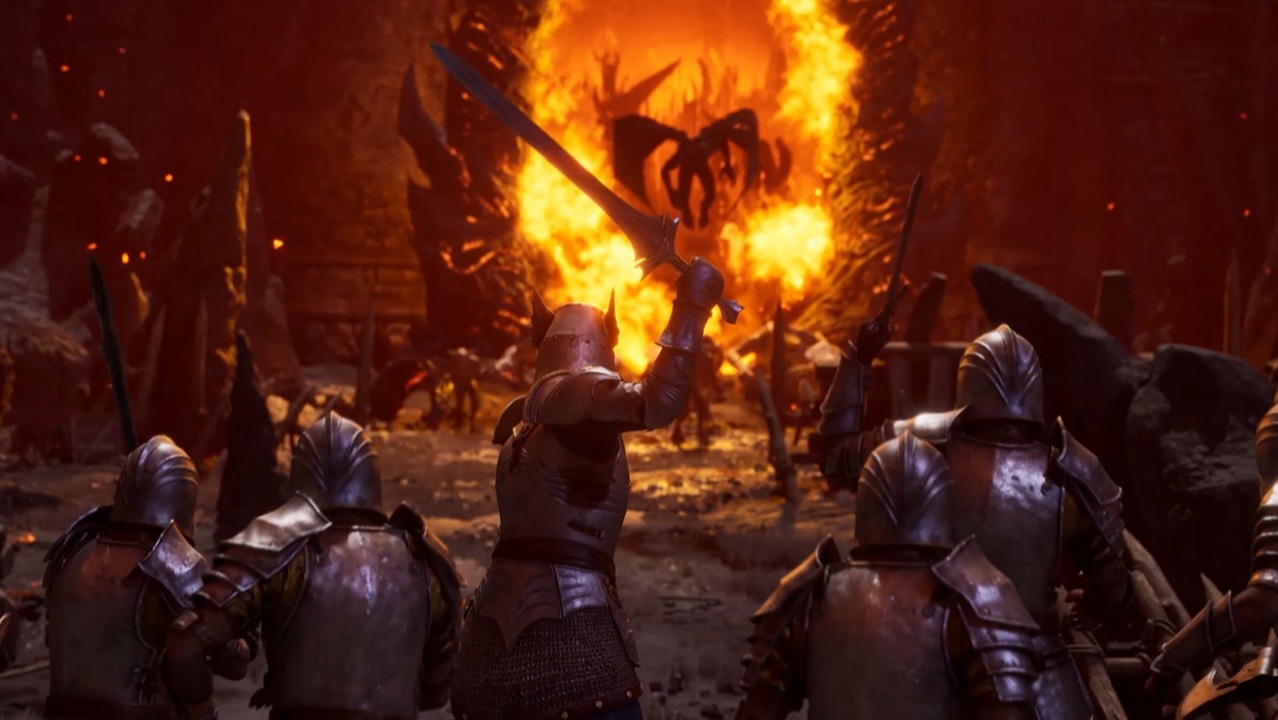
Assuming you have Oblivion Remastered installed on your PC and your NVIDIA drivers are updated, you should be ready to go.
- Launch the NVIDIA App on your PC.
- Click Graphics on the left-side vertical menu.
- Click The Elder Scrolls IV: Oblivion Remastered in your list of games.
- Click the drop-down menu next to the DLSS Override - Model Presets option in the main list.
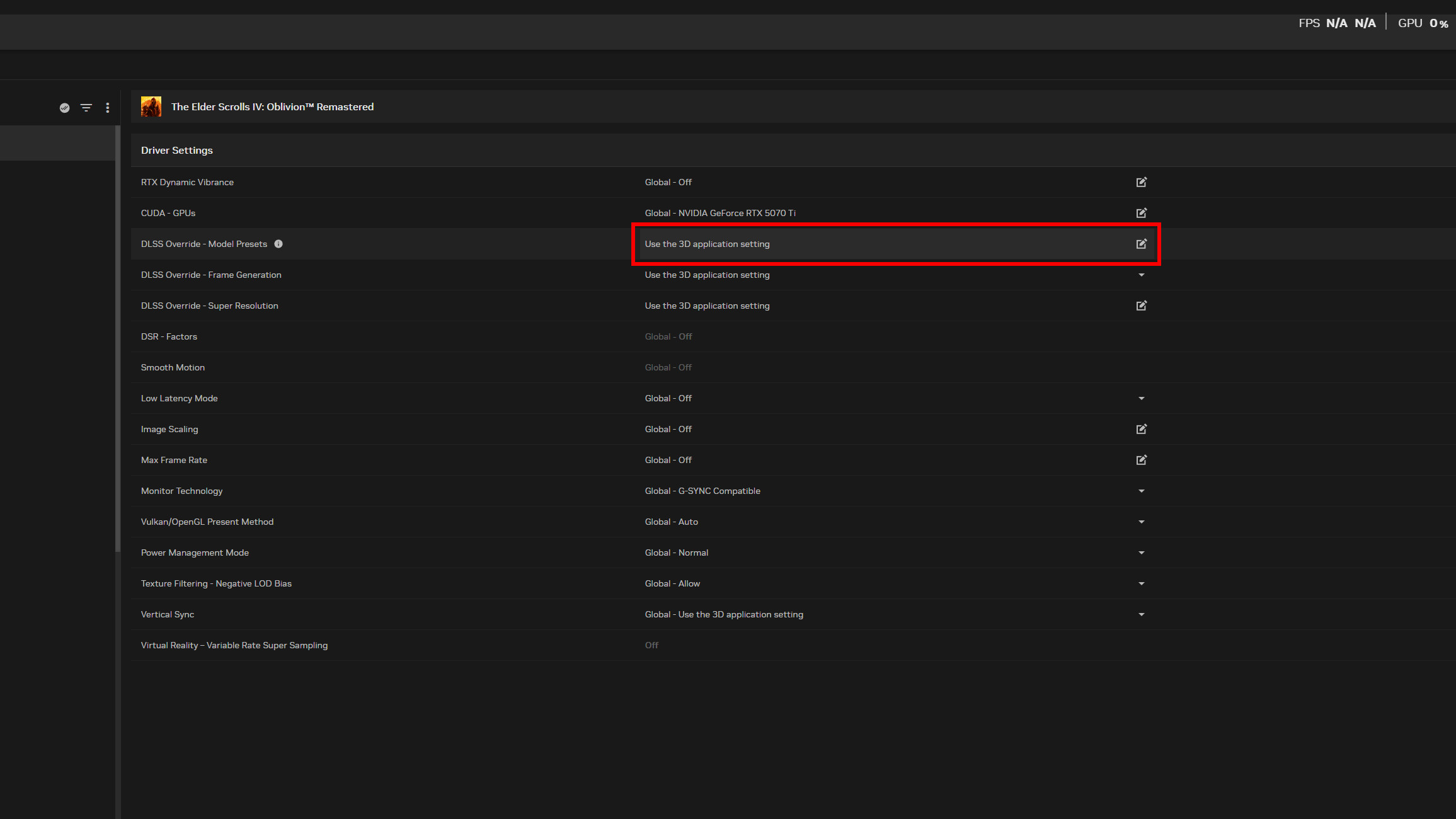
- Click the drop-down menu in the Use same settings for all DLSS technologies.
- Click Latest.
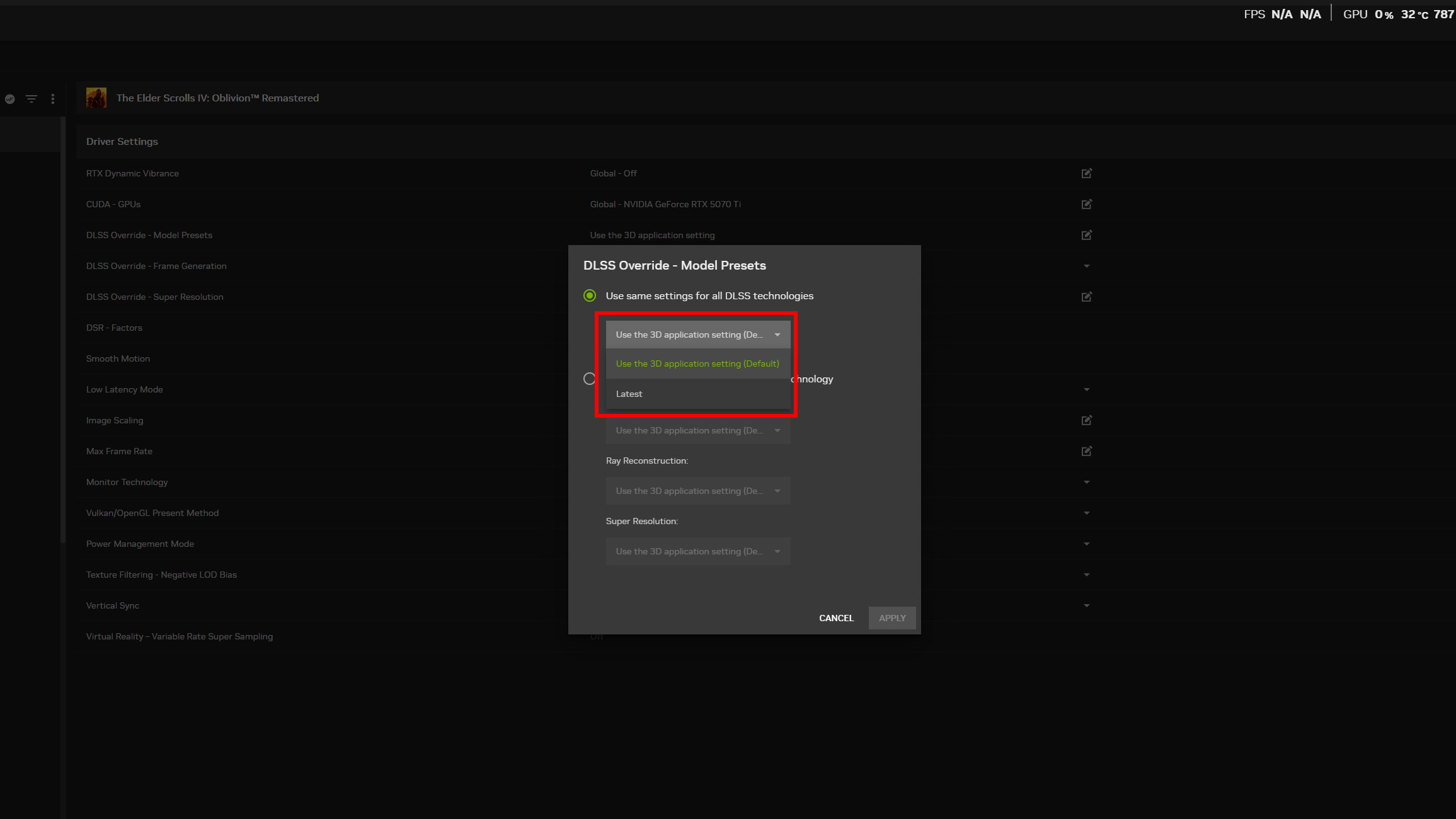
- Click Apply.
You've now set Oblivion Remastered to use NVIDIA's latest DLSS 4 Transformer model wherever possible. This alone should give you a nice FPS boost.
Frame Generation is the next stop on our performance journey.
For those using an RTX 50-series GPU that support Multi-Frame Generation, I urge you to test out the 4x setting to maximize frames-per-second.
- Launch the NVIDIA App on your PC.
- Click Graphics on the left-side vertical menu.
- Click The Elder Scrolls IV: Oblivion Remastered in your list of games.
- Click the drop-down menu next to DLSS Override - Frame Generation.
- Click 4x.
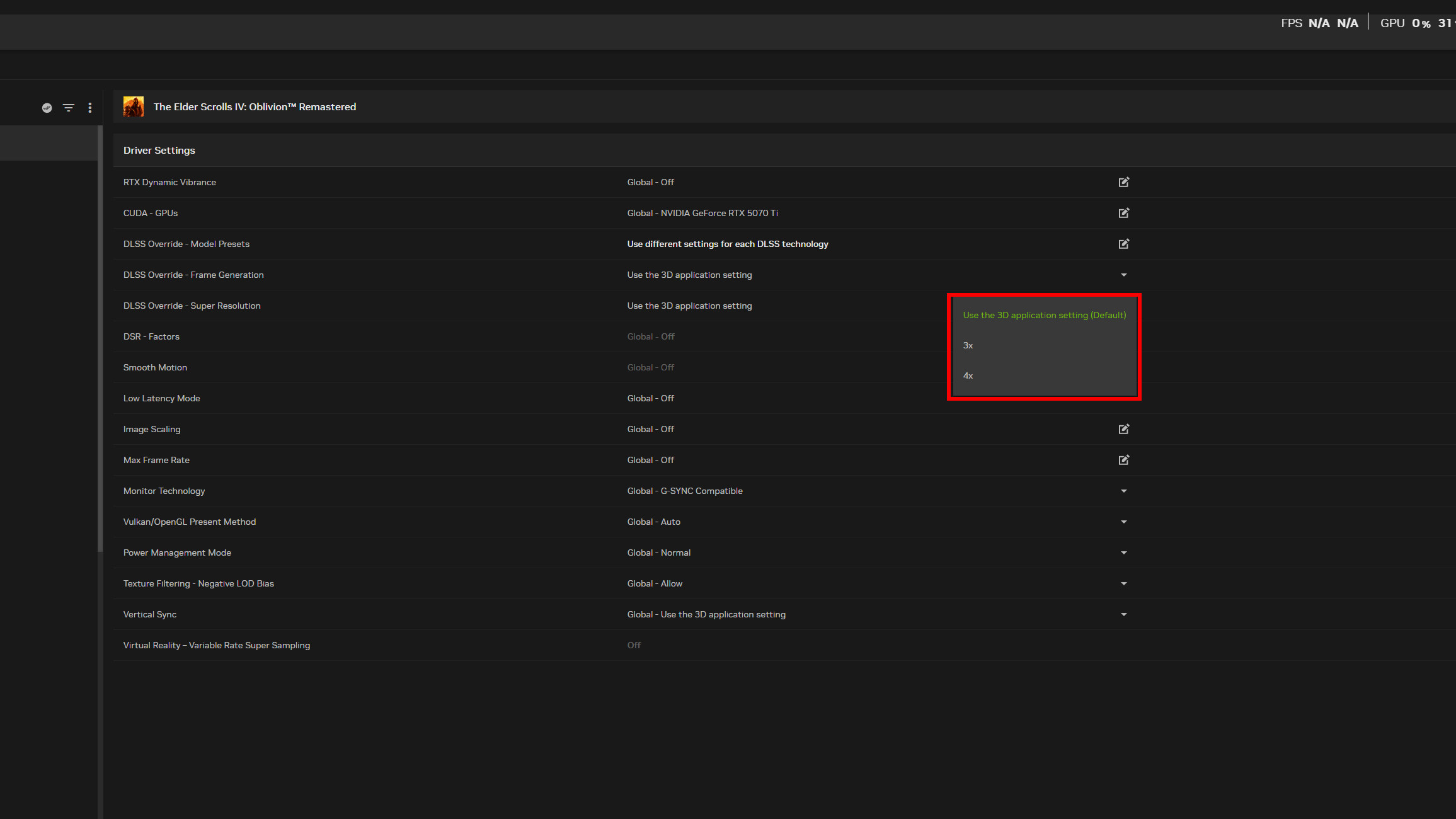
Oblivion Remastered is drop-dead gorgeous, but the redone graphics and lighting have moved to Unreal Engine 5, putting a heavier load on your PC hardware.
I tested the game at 1440p ultrawide with Ultra settings, and my combination of AMD Ryzen 7 9800X3D CPU and NVIDIA RTX 5070 Ti was barely capable of hitting three-digit FPS numbers when exploring the world.
After forcing NVIDIA to use its new Transformer model, frame rates have gone up, and the game simply looks a lot crisper.
Be sure to let me know in the comments section below how these changes have affected your experience.
What about NVIDIA RTX 40- and 30-series GPUs?
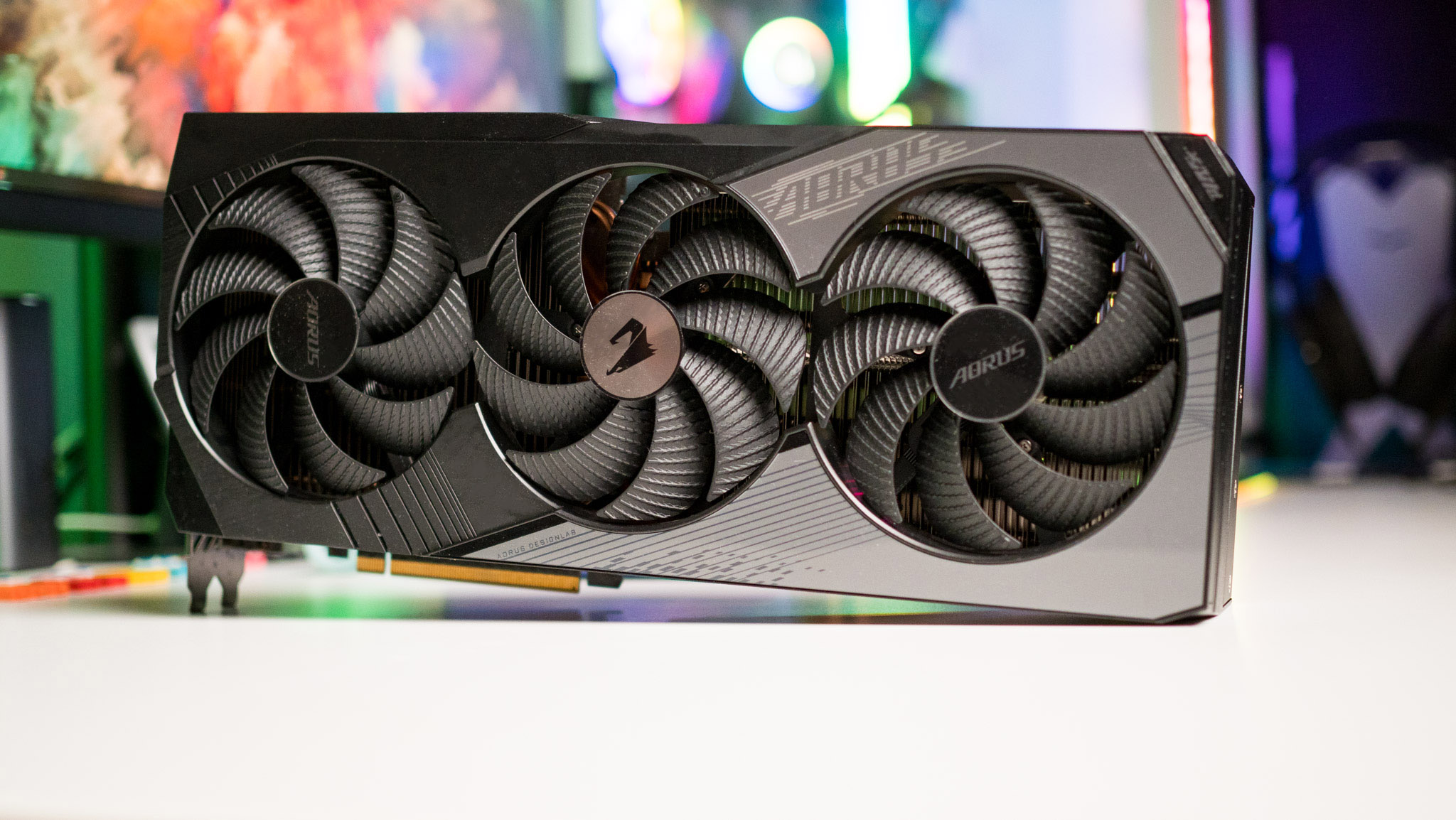
Unfortunately, NVIDIA's DLSS 4 Multi Frame Generation is an exclusive feature to the latest Blackwell RTX 5000 GPUs.
However, that doesn't mean your RTX 40- or RTX 30-series NVIDIA card can't make use of the overrides.
Any RTX card should be able to configure settings to use the Transformer-based Super Resolution, while RTX 40-series owners can take advantage of the latest standard of Frame Generation (without Multi Frame Gen).







